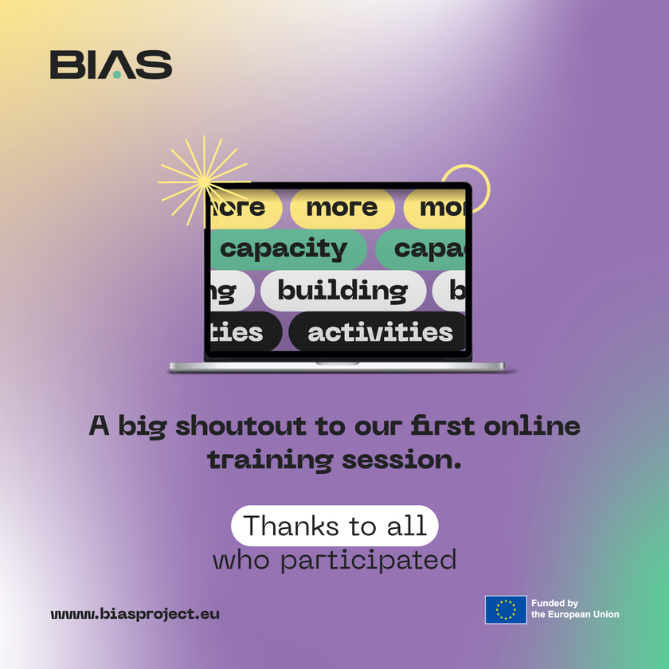22nd August 2024
On the 14th and 17th of June 2024, Smart Venice, under the framework of the BIAS Project, successfully conducted an insightful and immersive online training titled “Navigating Bias, Ethics Issues, and Tools in Selection and Recruitment.” 🎓 This two-day course was meticulously designed for HR professionals, focusing on the intricate relationship between Artificial Intelligence (AI) and Human Resources (HR), with particular attention to the challenges and ethical considerations of AI-driven recruitment processes. The training represented a pilot in view of the launch of the full capacity building program in 2025.
The primary objective of the training was to equip HR professionals with the necessary skills and knowledge to understand and mitigate bias within AI systems, explore the ethical implications of AI adoption, and master the use of AI technologies in recruitment processes. 🚀 The training also aimed to foster critical thinking among participants, encouraging them to question AI outputs and to develop a more informed and responsible approach to integrating AI into HR practices.
The training was held over two days:
🗓️ 14th June 2024: From 10:30 AM to 1:30 PM.
🗓️17th June 2024: From 10:00 AM to 5:00 PM.
The sessions were conducted via Zoom and attracted a diverse group of participants. 💼 A total of 26 individuals, including HR officers, external consultants, researchers, and industry leaders, took part in the training, though not all participated in every session. The variety of job roles represented—from HR Business Partners to Founders and Senior Advisors—ensured a rich exchange of ideas and perspectives.
The training was structured around six core learning objectives, each addressing a crucial aspect of AI integration in HR:
Regarding the methodology, the training employed a variety of adult learning methodologies to ensure that participants could actively engage with the content and apply their learning in real-world contexts. These methods included hands-on exercises, including self-reflection activities and prompt engineering and interaction with real AI-based technologies, which allowed participants to reinforce their learning. These sessions were designed to address the challenges associated with AI in recruitment, offering practical experience in a controlled environment.
To conclude, the “Navigating Bias, Ethics Issues, and Tools in Selection and Recruitment” training offered participants a deep dive into the complexities of AI in HR. 🌟 By focusing on both the technical aspects of AI and the ethical considerations, the training provided a balanced and comprehensive approach to modern HR practices. According to the feedback from the post-training questionnaire, most participants expressed satisfaction with the content and felt they had achieved their learning objectives. They also provided constructive suggestions for improving the training, which the Smart Venice team will incorporate as they finalize the capacity-building program.
The BIAS Project, through this training and other initiatives, continues to play a crucial role in shaping the future of HR by promoting responsible and ethical AI adoption. 🤝
